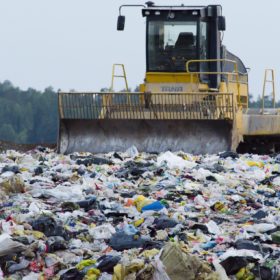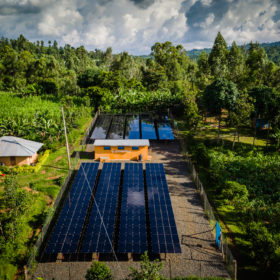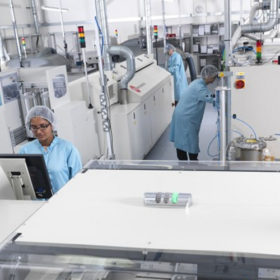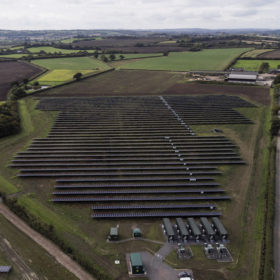Solar performance polluted by urban haze
Research conducted over several years by scientists at the Massachusetts Institute of Technology (MIT) demonstrates that air pollution in cities can put a dampener on the performance of PV panels which, if not taken into account, can threaten a project’s viability.
Germany reaches milestone of 100,000 installed storage systems
According to the German solar trade association, BSW-Solar the number of energy storage systems in Germany is set to double in two years. Already, politicians recognize the increasing relevance storage has, in light of the progressing energy transition.
Ramaphosa offers optimism for South African solar
Although lobbyists will be dismayed a 1 GW annual cap on PV will remain, the indications are it will disappear after 2030 – if not before – and renewables appear to have become a more attractive proposition than nuclear, as coal is phased out.
Europe surpasses 1 million EV milestone
The market experienced strong growth in nearly all states. Scandinavian countries lead the charge, but Germany showed strong growth in the first half of 2018, analysts report. An uptake in EV sales might result in profound effects on their use as flexible storage units, recent reports and interviews suggest.
Degradation control tests for solar PV modules
Module degradation tests are essential not only for effective plant operations, but also to ensure an optimum ROI. However, fixed laboratories, where such tests are usually carried out, involve transportation issues, while it is not always economically feasible to send in mobile laboratories. So how can degradation in these instances be measured? Leonardo Enrique Pérez Abreu, Technical Manager of the Testing & Optimization department at Enertis discusses this issue.
EU funds pilot plant for PV module recycling
German company, Geltz Umwelt-Technologie has developed an advanced recycling plant, which it says could recover up to 95% of the materials in a module for reuse. With funding from the EU’s Horizon 2020 project, the company is planning a pilot facility that could recycle up to 50,000 silicon based PV modules per year.
Researchers propose doubling today’s solar panel efficiency using two weird tricks
By double stacking a perovskite-silicon solar cell and using the cell in a glass-on-glass bifacial solar module, scientists model that a 30-36% efficient solar module can be attained.
Adding businesses to microgrids helps financial viability
Adding energy-intensive industries to microgrids can help refinance system costs and can lower tariffs for residential consumers, a study suggests. To achieve this though, accurate system design and sizing are essential.
Bosch and Ceres planning fuel cells to power future cities
The Stuttgart-based industrial group wants to work on technology development and production with the British fuel cell manufacturer. Bosch considers highly efficient fuel cells an important step forward in the energy transition.
First utility-scale battery helps relieve stress on UK’s national grid
A 10 MW system in Derbyshire provided power to the grid as part of a virtual power plant in a national first. It should prove a popular development, according to the results of a new survey.










